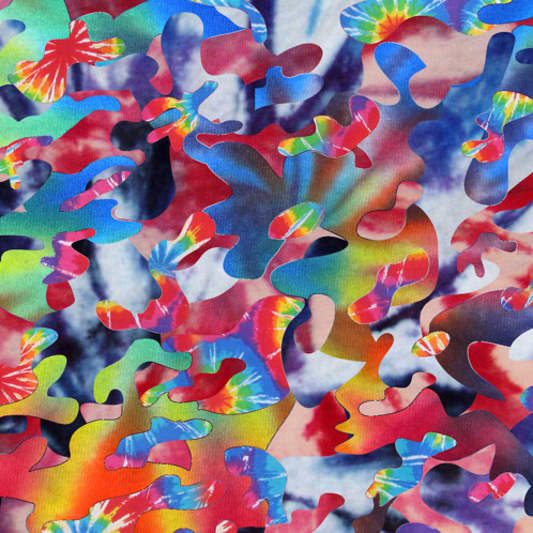
l
Send me a note through the contact button above.
Interview with Double Sided Galaxy
Q: Tell us about your studio setup.
A: My studio is small... it's an 11'x11' room in my small house, but I think I'm a good interior designer and can make a space feel really comfortable and vibe well. In that room I've got an old Hammond M3 organ, Rhodes, vintage Leedy/Ludwig drum kit, amps and guitars, synths, and my recording gear. I think you'd be surprised to see how well it all fits and still have enough space to set up a pedal board and jam with three other people. My recording setup is small but slowly growing... I use Pro Tools 12 on an iMac, and an RME Fireface UCX interface which is super clean sounding. I have a Universal Audio Solo 610 tube mic pre that sounds lovely, and a JoeMeek VC1Q which is a mic pre, opti compressor, and eq, and that sounds nice on vocals and bass. Microphones I have are a Neumann TLM 102, Electro Voice RE20 (like Thom York uses on his voice, and a lot of radio stations use, like on the Howard Stern show), a couple Cascade ribbon mics, a couple Shure SM58's, etc.
Q: What was your career path? How long have you been doing this?
A: I was recording my own music starting in middle school using the program Acid by Sony and Reason by Propellerhead. I made hundreds of songs... making a song for the personality of each of my friends, and even making a song a day for a whole year. It was pretty much all I did when I was home. I graduated from the Los Angeles Recording School in 2010, and started working in Ocean Way (now called United) in Hollywood, and Record One in Sherman Oaks. I learned a lot from working in those two studios for three years. Now I'm working at an art college and recording out of my home studio in my spare time.
Q: What type of music do you usually work on?
A: I usually work on acoustic singer/songwriter stuff, blues, and non-typical rock (I'm not the greatest at genre identifying).
Q: What's your strongest skill?
A: I think my strongest skill might be patience. I am not a fast-paced person; I don't talk fast, I don't eat fast, usually don't drive fast... I keep a calm life that I enjoy. Although I am fast with recording and Pro Tools!
Q: What do you bring to a song?
A: I like to go for a more vintage sound rather than a glossy perfection. I love that a lot of legendary songs from the 60's and 70's all have mistakes and goofs in them but they add so much personality to the song that we don't think of it as a mistake.
Q: What's your typical work process?
A: If it's an individual songwriter I typically start by recording your guitar or keys, then jump right to the rhythm section of the song if possible and do the drums and bass, because I think that's important to get the rest of the instrumentation grooving. I'll tend to record the vocals last. If it's a band that can fit in my studio space, I'll try and record everyone at once, only if they have their songs down and solid, and then add overdubs and vocals last. Because my studio is small, instruments will leak into each other's mics when it's a full band playing at once, but it can have a nice live sound if your band is well rehearsed.
Q: What other musicians or music production professionals inspire you?
A: I'm really inspired by the multi-instrumentalist composers out there like Jon Brion, Prince, Paul McCartney, Jonny Greenwood, and Beck to name a few.
Q: Describe the most common type of work you do for your clients.
A: Recently I have been recording solo songwriters that come in and lay down the main guitar part or piano part and vocals, and then need help adding the rest of the instrumentation. I'll then work with them to figure out the style they want for the drums, keys, bass, etc. and I will play and record most of those parts myself while they roughly direct me to what they are imagining.

I was the Recording and Mixing Engineer in this production
- Mixing EngineerAverage price - $100 per song
- Recording StudioAverage price - $150 per day
- PercussionAverage price - $25 per song
- Keyboards - SynthAverage price - $25 per song
- Bass ElectricAverage price - $25 per song
- Full instrumental productionAverage price - $300 per song
1 revision allowed, extra revisions are a second fee. Turn-around time is usually 3 days but in some cases can take up to a week. A recording session "day" is considered six hours, can be spaced out.



